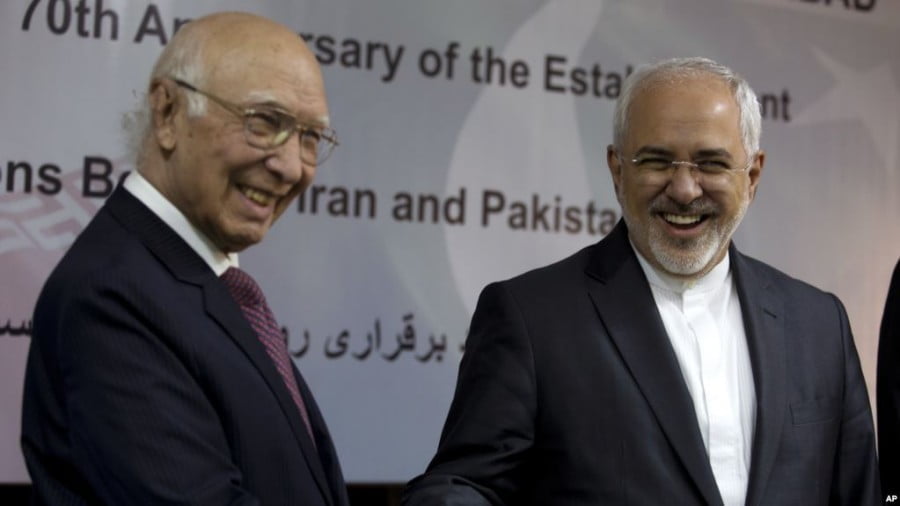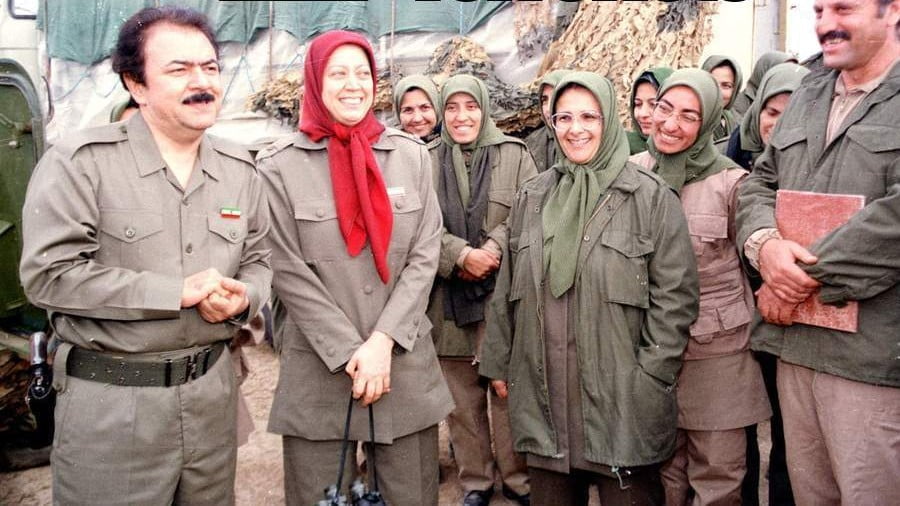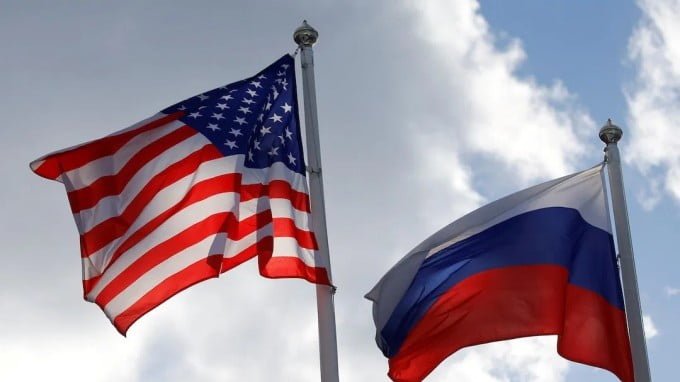Iran-Saudi Detente Runs Through Pakistan – Javad Zarif Just Proved It
Iran’s influential Foreign Minister Javad Zarif has concluded a three day visit to Pakistan. While many international eyes have been focused on the war in Syria and Britain’s new cold war with Russia, an incredibly positive development has occurred in Islamabad. Two countries that between the 1950s and 1970s were close allies, Iran and Pakistan, look to re-cast their bonds as meaningful multipolar partners. Substantial progress has already been made.
Zarif for his part made it perfectly clear that for Iran there are no obstacles to further enhanced relations. He conveyed this by emphasising the following points during his visit:
1. India’s Investment in Chabahar Does Not Threaten Pakistan or China
Iran’s Chabahar Port on the Gulf of Oman has often been touted by New Delhi as an alternative to the Gwadar Port on Pakistan’s Arabian Sea coast, which itself forms the western gateway to the China-Pakistan Economic Corridor (CPEC). Iran has made it abundantly clear that Tehran does not view Chabahar in this way. During his visit Zarif said that he welcomed Pakistani and Chinese investment in Chabahar, thus clearly presenting Chabahar as something that compliments rather than rivals the larger port at Gwadar.
2. Zarif Thanked Pakistan for Preventing a Terrorist Attack on Iran
During the Iranian Foreign Minister’s meeting with Army Chief General Qamar Javed Bajwa, Zarif stated,
“Last night, unfortunately, we had two suicide [bombing] attempts from Pakistani territory into Iran. Both of them were foiled and we had excellent cooperation from the Pakistani armed forces in order to contain this”.
This means that closer cooperation on vital security issues is already intensifying between Islamabad and Tehran and furthermore, it demonstrates a realisation on both sides of the border that the only way to neutralise Baloch separatist terrorism is by coordinating efforts between the two states.
3. A Saudi Olive Branch and An Assurance About India
While many Pakistani elite continue to have incredibly good relations with Saudi Arabia, Zarif drew a crucial parallel stating that Iran does not pre-judge let alone condemn Islamabad’s relations with Riyadh, anymore than Pakistan should view Iran’s relations with India as anti-Pakistani in nature. Indeed, during his recent visit to India, Iranian President Rouhani addressed Muslim clerics and scholars in Hyderabad and spoke about the importance of pan-Islamic unity in the name of peace and cooperation. The message was clearly directed at Pakistan as a sign of reassurance.
And then came a statement directed at Saudi leaders, crucially made from Pakistani soil. Zarif said that if Saudi Arabia comes under attack, Iran will be the first to defend the holy sites of Mecca and Medina from aggression. He further stated,
“I hope that they (Saudis) have the same feeling and (will) be ready to bridge the dif
ferences. The problem is that Saudis think that it is beneficial to them if the world considers that Iran is a threat against Saudi Arabia. There is no reason for hostility between Iran and Saudi Arabia.
…We have already declared our readiness for talks with Riyadh and Tehran and welcomed former Pakistani Prime Minister Mohammad Nawaz Sharif’s proposal on starting the dialogue”.
This is not the first time in recent years that Iran has extended an olive branch to Riyadh, but in doing it from Pakistan, there is a clear subtext that Pakistan, as an historic partner of both Saudi Arabia and Iran and a current partner of both, could help to facilitate dialogue between the two countries.
This is not to say that somehow Iran is forgiving Saudi Arabia’s known sponsorship of terrorism against Iran and its allies in the Arab world, but it is indicative of an Iran that would prefer de-escalation to hostility, just as the leaders of the two Korean states have recently demonstrated they value the same.
Iran and Saudi Arabia will never see eye to eye, but it is entirely possible for the two countries to restore diplomatic relations and agree to build a relationship in a new era where Saudi Arabia’s focus on internal reform ought to take precedence over an expensive and ultimately failed anti-Iranian foreign policy.
Furthermore, as I previously wrote, such a detente could see Pakistan becoming an international peace broker for Yemen, thus ending a conflict where even more so than in Syria, Riyadh and Tehran are totally at odds with one another.
Pakistan’s willingness to embrace multipolarity and win-win models of cooperation in the areas of both trade and security, ought to set a clear example of how bridges can be built and how avenues of cooperation can be expanded. Russia and China would of course be all too happy for Pakistan to work on creating some kind of detente between Iran and Saudi Arabia. Clearly, Iran’s door is open to such a possibility, one that could go a long way towards taking the wind out of the US-“Israeli” war mongering against The Islamic Republic of Iran.







